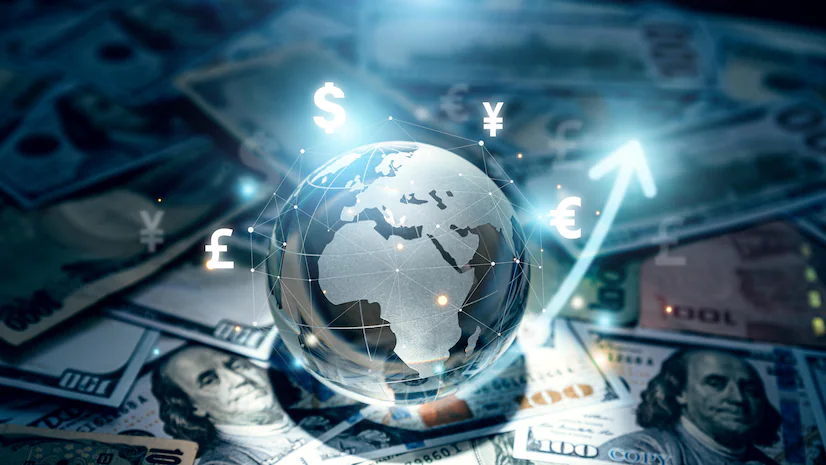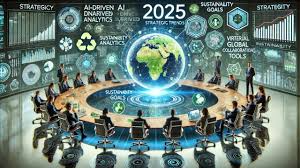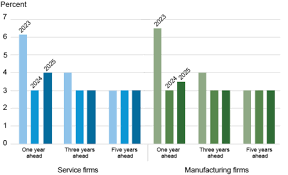Real Estate Insights
View All ►
WSJ
Barron's
MarketWatch
IBD
Buy Side from WSJ
Subscribe
Sign In
English Edition ▼
Print Edition
Video
Audio
Latest Headlines
More ▼

OPINION
REVIEW & OUTLOOK
Follow
A look at the biggest economic challenges in 2025, from inflation and recession risks to trade disruptions and market volatility.

The global economy in 2025 faces multiple challenges, including inflation, supply chain disruptions, geopolitical risks, and financial market instability. Governments, businesses, and investors are adapting to a rapidly evolving economic landscape. This article explores the key economic risks and opportunities shaping 2025.
As the world navigates 2025, the global economy faces unprecedented challenges, from inflation and recession risks to geopolitical tensions and stock market volatility. With interest rate fluctuations and supply chain disruptions reshaping industries, businesses and investors must adapt to remain resilient. This article explores the biggest economic challenges of 2025 and the opportunities they present.
Global inflation remains a pressing concern in 2025, as central banks, including the U.S. Federal Reserve and the European Central Bank, attempt to control rising prices while maintaining economic stability. Interest rate hikes could slow down economic growth, impacting consumer spending, business investments, and housing markets. Investors are closely watching policy decisions that will determine financial market trends.
Many leading economies, including the U.S., Europe, and China, are experiencing slower-than-expected growth. Factors such as high debt levels, reduced corporate earnings, and weak consumer confidence contribute to recession fears. Businesses and governments must implement strategic policies to avoid prolonged downturns.
Ongoing geopolitical conflicts, labor shortages, and raw material scarcities continue to disrupt supply chains. Companies are shifting towards localized manufacturing and automation to mitigate risks, but the transition takes time. Understanding these shifts is crucial for businesses relying on international trade.
Market fluctuations remain a significant concern as investors react to economic uncertainty, tech sector developments, and monetary policies. Sectors like AI, clean energy, and biotech are emerging as strong investment areas, while traditional markets face instability. Portfolio diversification is key to managing risks.
Oil, gas, and raw material prices remain volatile due to geopolitical instability and the global shift toward renewable energy. Governments are investing heavily in alternative energy sources, but short-term energy shortages could disrupt industries and raise consumer costs.
Technological advancements, particularly in artificial intelligence and automation, are transforming industries. While AI boosts productivity, it also raises concerns about job displacement and economic inequality. Governments and businesses must balance technological progress with workforce stability.
Developing economies in Asia, Africa, and Latin America offer growth potential but face risks such as currency instability, inflation, and political uncertainty. Investors looking for diversification must assess these markets carefully.
The global economy in 2025 is filled with uncertainties, but it also presents unique opportunities. Businesses, policymakers, and investors who adapt to inflation risks, supply chain changes, and digital transformations will be better positioned for long-term success. Staying informed and making strategic financial decisions is crucial in navigating this complex landscape.
THE WALL STREET JOURNAL
Continue reading your article with a WSJ subscription
Subscribe Now
Already a subscriber?Sign In
What to Read Next
OPINION
Major Global Events in 2025 – Key Developments Shaping the World
2025-03-19

A look at the most significant global events of 2025, from politics to economy and technology.
OPINION
Top Geopolitical Risks in 2025 – Global Conflicts & Tensions
2025-03-19

An analysis of the biggest geopolitical risks in 2025, from rising global conflicts to economic instability.

OPINION
Biggest Economic Challenges in 2025 – Global Risks & Opportunities
2025-03-19

A look at the biggest economic challenges in 2025, from inflation and recession risks to trade disruptions and market volatility.
OPINION
Major Technological Innovations in 2025 – The Future is Here
2025-03-12

Breakthrough technologies revolutionizing industries in 2025.
OPINION
Top Global Conflicts & Geopolitical Risks in 2025
2025-03-12

Major conflicts and geopolitical tensions shaping 2025.
OPINION
Global Economic Trends in 2025 – Key Factors Shaping the Markets
2025-03-12

Major economic trends influencing global markets in 2025.
OPINION
Major Geopolitical Events in 2025 – Global Conflicts & Alliances
2025-03-12

Key geopolitical developments shaping global politics in 2025.
OPINION
Biggest Economic Trends in 2025 – What to Expect This Year
2025-03-12

Key economic trends shaping global markets in 2025.
Latest News
Real Estate Insights
View All ►
Most Popular News
Most Popular OPINION
Further Reading
